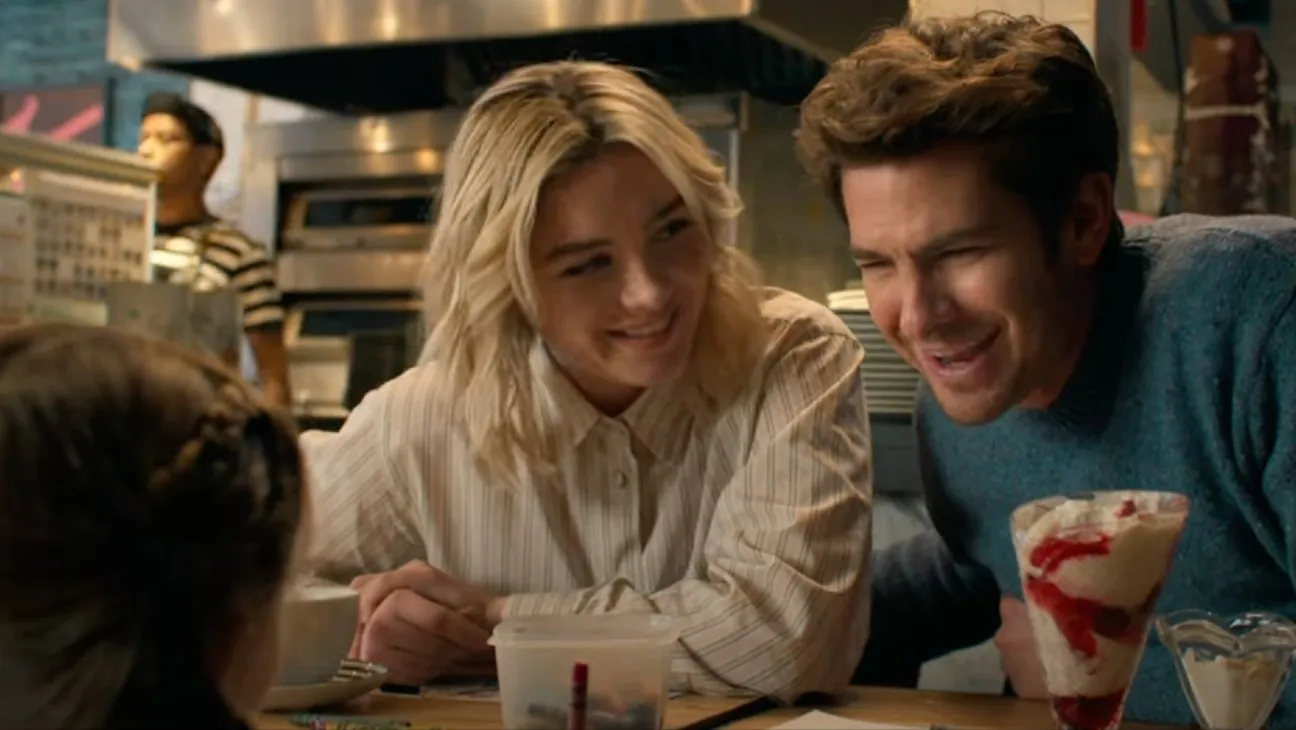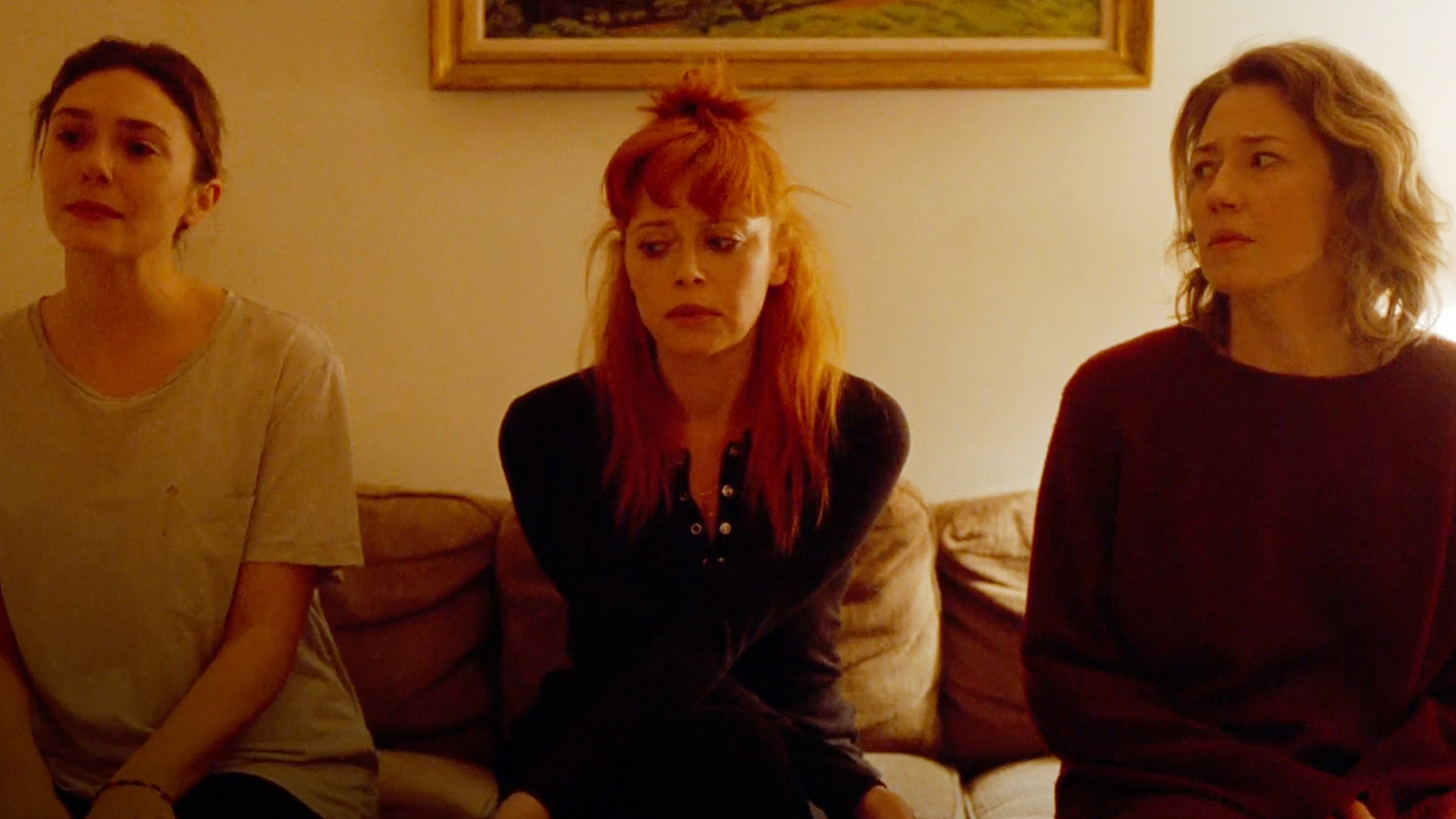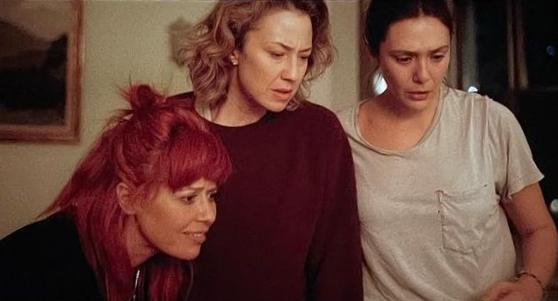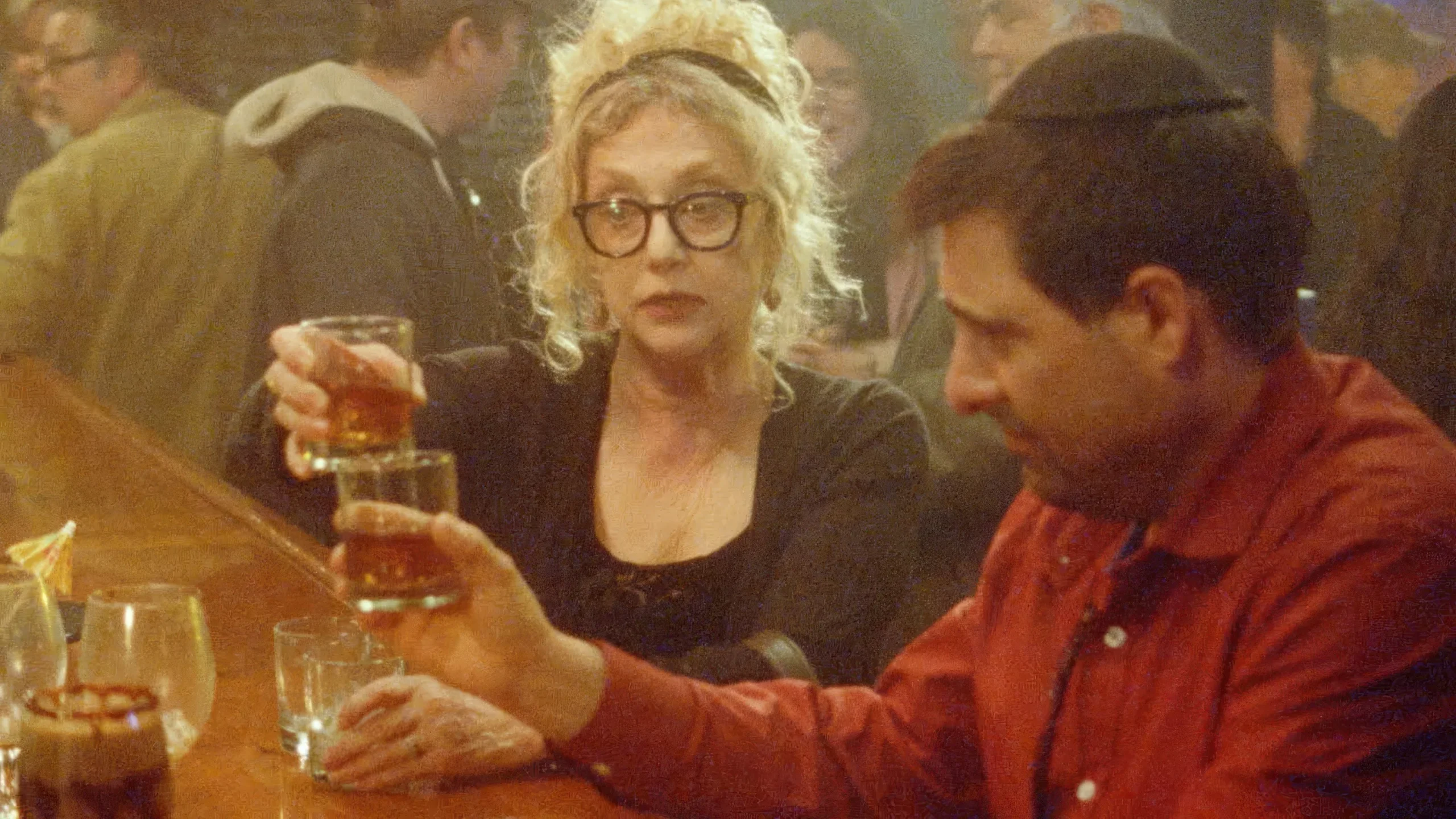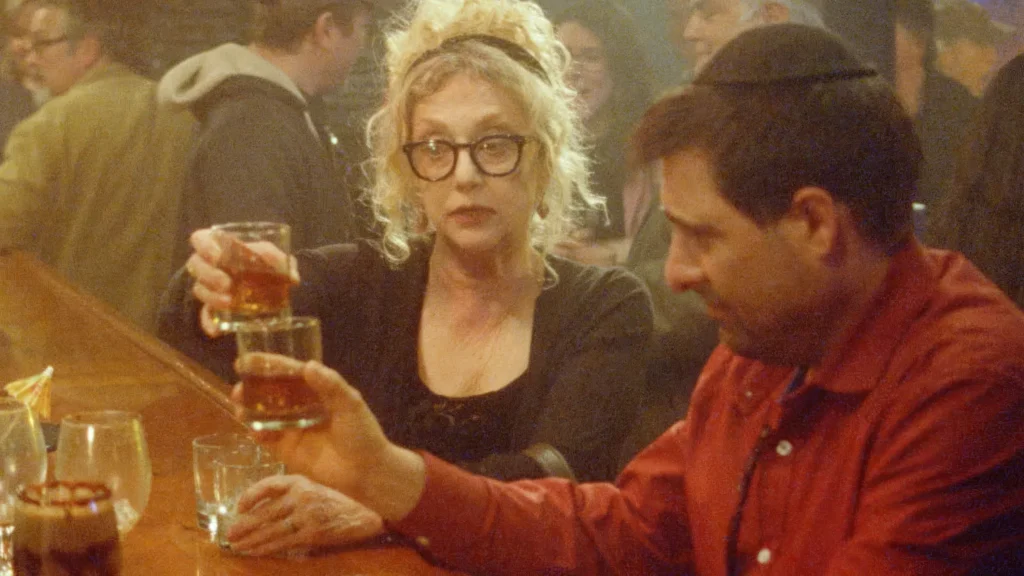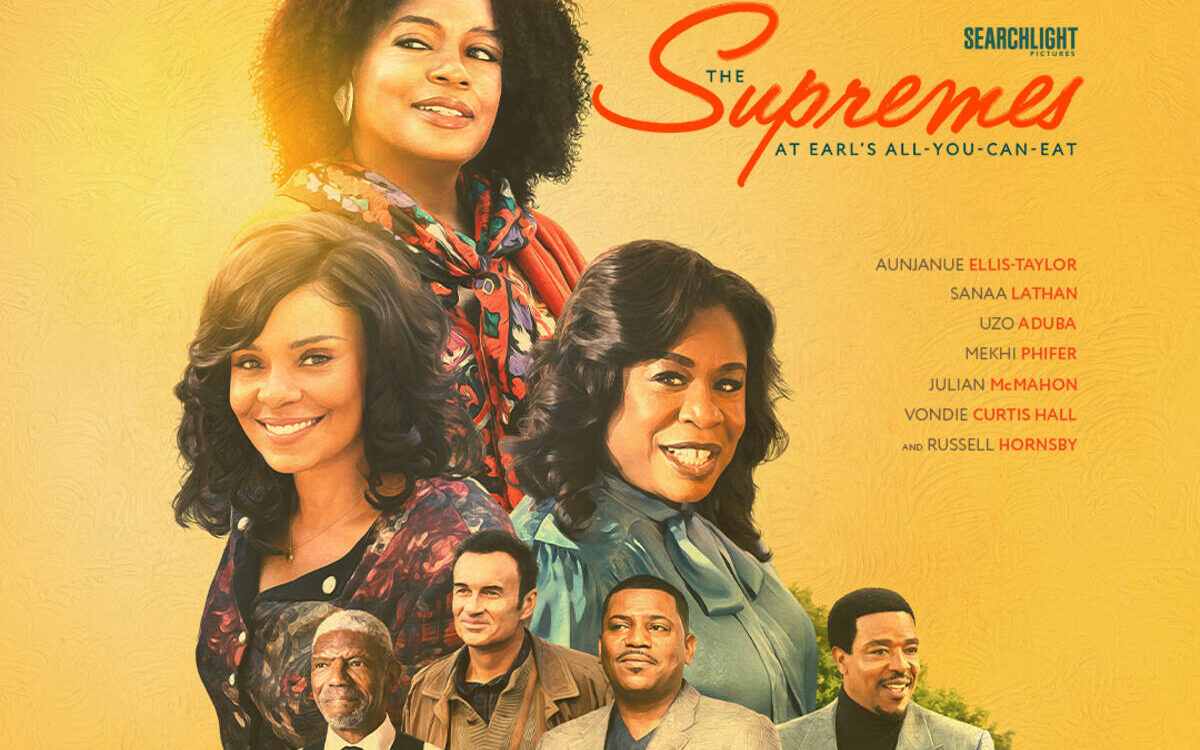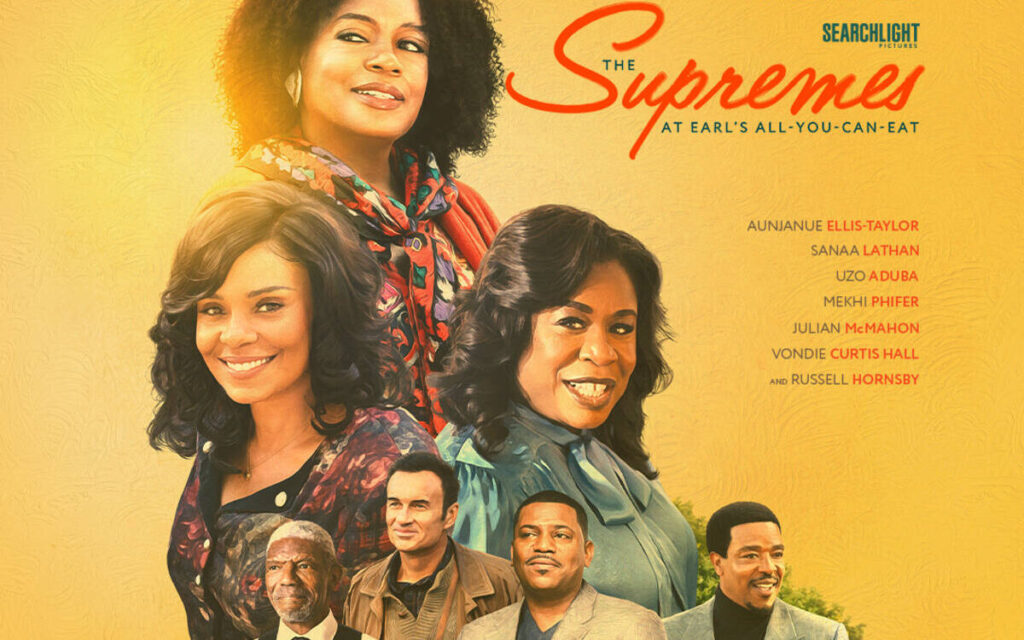We Live in Time
Posted on October 17, 2024 at 5:28 pm
B| Lowest Recommended Age: | Mature High Schooler |
| Profanity: | Rated R for language, sexuality, and nudity |
| Alcohol/ Drugs: | Alcohol |
| Violence/ Scariness: | Cancer and cancer treatment, sad death of a parent, car accident with injuries |
| Diversity Issues: | None |
| Date Released to Theaters: | October 18, 2024 |
“We Live in Time” tries so hard to be a better movie that it seems churlish to point out that it just isn’t. The movie goes back and forth between three different time periods in the relationship of guy with soulful eyes and a boring job with a cereal company Tobias (Andrew Garfield) and successful and very creative chef and life force Almut (Florence Pugh). If it was told in a straightforward chronological manner with less talented and charismatic actors, it would just be a soapy second-rate streamer.
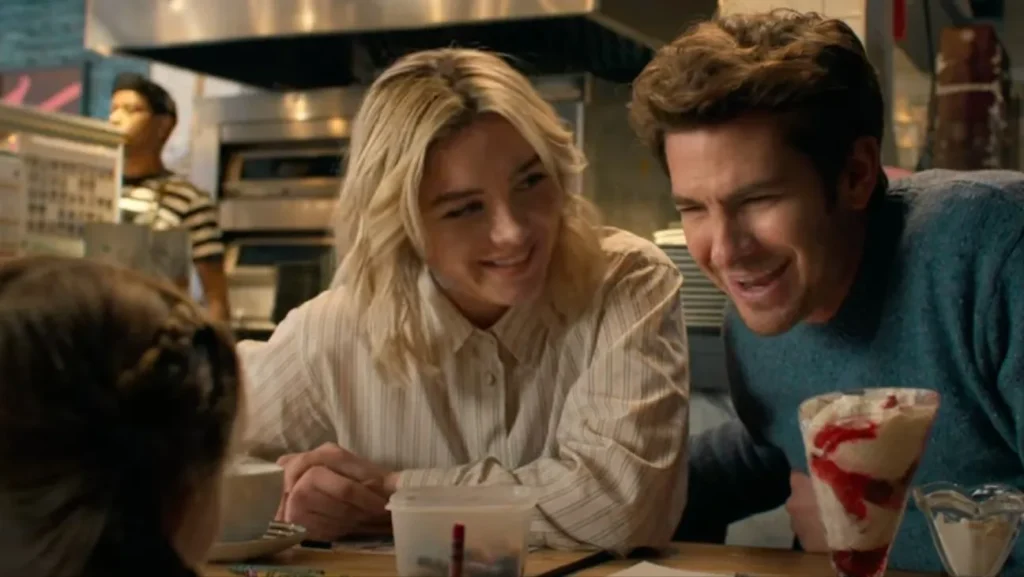
But it is told elliptically, so at the very beginning of the film, before the “how did they meet” and rest of the backstory, we learn that Almut has cancer for the second time. She knows how brutal the treatment will be and this sets up the existential questions of the movie: will/should she choose quantity of time or quality of time? How will she make the time she has meaningful? This sets the stakes, and then we go back to learn their story. This is where the movie star gloss may keep audiences from noticing that there is less than meets the eye.
Tobias, in something of a daze as he tries to sign divorce papers in a hotel room, leaves in a bathrobe to find a working pen and is hit by a car when he wanders onto a highway. Almut is the driver. This is one of the most contrived and least appealing meet-cutes in movie history, especially factoring in an awkward misunderstanding about Tobias’ marital status.
Almut has her own restaurant, specializing in Bavarian-English fusion cuisine. This is one of the many details in the movie that are intended to be meaningful and/or character-defining but are not. We do not understand why her job is important to her or what it reveals about her, and the same goes for a mid-movie revelation to us and Tobias about something she excelled at in her teens and then left behind. Tobias has a job that seems meaningless to him. We suspect it may be lucrative or demanding, but none of that matters to the story. Nor does his brief description of what happened to the wife he was divorcing the night Almut ran into him. His job in the story is to have his eyes well up with tears and be lop-sidedly supportive of his wife, and Garfield does as much with that as a top-level movie star can do.
The primary indicator signaling the different time periods is Almut’s hairstyle and where they live. We see them meet. We see her first diagnosis, when she is given a choice between lowering the risk of recurrence or keeping the possibility of giving birth. We see her pregnancy and the emotional and hilarious childbirth in an unusual location. And then we go back to what she does after the second diagnosis and the strain it puts on her marriage. But even with the existential questions about what we do with the time we have and how we cope with terrible loss, the movie does not earn its jumbled storyline, which is more confusing than illuminating. More important, the screenplay is not up to the level of its vastly talented and charismatic stars.
Parents should know that this film includes very strong language, explicit sexual references and situations, nudity, cancer and cancer treatment, the sad (offscreen) death of a parent, and a car accident with injuries. Characters drink alcohol.
Family discussion: Almut was faced with two difficult decisions following her diagnoses. What do we learn about her from the choices she made? What did she learn about herself? What does the final scene tell us about Tobias?
If you like this, try: “Love Story,” “Terms of Endearment,” and the stars’ comic book movies, “The Amazing Spider-Man” and “Black Widow“

